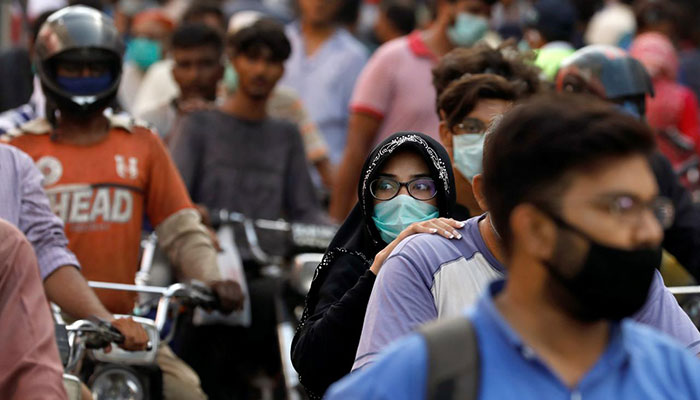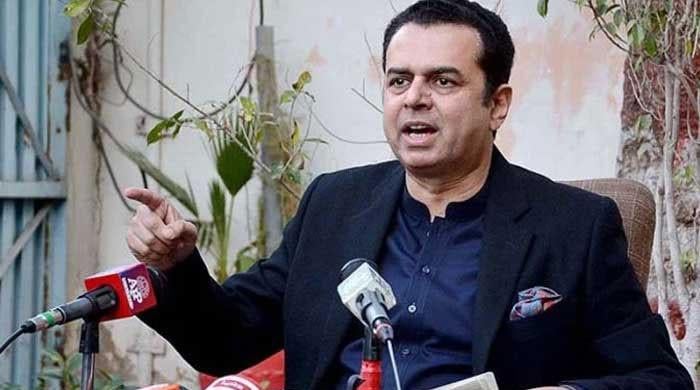Pakistan reports lowest number of COVID-19 deaths in 3 months
We had a peak of 153 [COVID-19] deaths on 20 June and in last 24 hours we had 20, says Dr Zafar Mirza
July 27, 2020

ISLAMABAD: Special Assistant to the Prime Minister on Health, Dr Zafar Mirza revealed that Pakistan reported its lowest number of COVID-19 deaths in the past three months on Sunday, when only 20 people died due to the infection.
Taking to Twitter on Monday, the prime minister's adviser disclosed that the current statistics indicated an 87% drop in COVID-19 deaths.
"Today, Alhamdolilah, we have the lowest number of deaths in Pakistan due to COVID-19 in last 3 months. We had a peak of 153 deaths on 20 June and in last 24 hours we had 20. This is 87% reduction in COVID-19 related deaths. Yet no place for any complacency!" he tweeted.
Critics have said that a drop in coronavirus cases in Pakistan has been observed to the government testing less number of people. However, PM Imran's focal person on COVID-19, Dr Faisal Sultan rejected the claims in a press conference on Sunday.
Read more: Reduced testing 'not a conspiracy', says govt's focal person on COVID-19
Dr Sultan had said that a lower testing rate is being witnessed due to a "reduction in symptoms being witnessed in people".
"When the spread was more rapid, we carried out a greater number of tests," he had stated.
Dr Sultan had said that during mid-June, there was an average of more than 32,000 tests conducted daily. In the last 24 hours, 23,000 tests were carried out, he said.
When asked what the current testing capacity for the country is, he had said that Pakistan is currently capable of carrying out testing in excess of 50,000 tests a day which can further be ramped up to 75,000 if need be.
He said there is no "grand master" who can move the number of tests up or down.
"There are 102 labs operating all across the country," he had said, adding that they are carrying out testing more under the contact tracing mechanism now.
Dr Faisal had said that the demand is "based on symptoms or perceived need" and that "health-seeking behaviour can obviously affect testing numbers".









